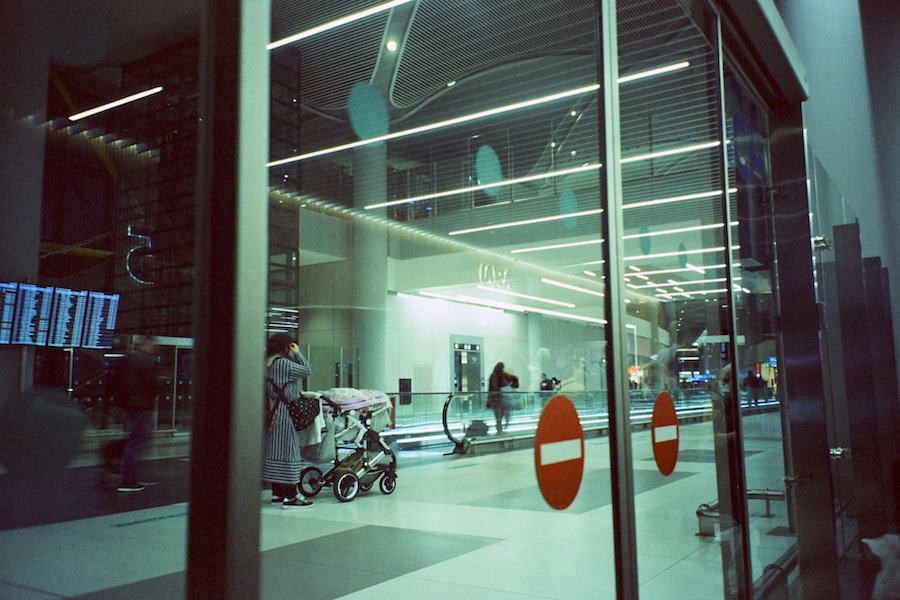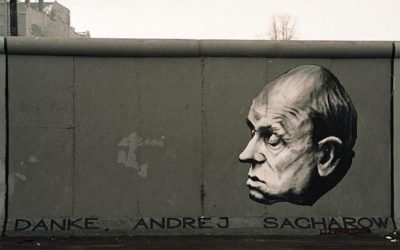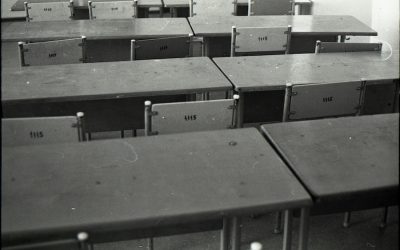Part 2: Abroad
Dmitry Dubrovsky
Photo: A number of countries have introduced a visa ban, and this has made it impossible for Russian scientists to communicate and collaborate with scientific institutions in such countries. Photo by Alexander Markin on Unsplash
In the first part of this article, we opened a conversation about the strategies of Russian scientists who have remained in the country following the start of the full-scale war. In the second part, we will talk about those who have left.
Why It’s So Hard to Leave
One scenario that is possible, but very costly, for scientists and teachers is leaving the country. Most often, the reason for their departure is an immediate danger or a moral and/or rational choice not to work in Russian academia during the era of the “special operation.”
At the same time, recent studies show that even in the presence of a threat, not to mention other factors, researchers may not leave because they do not see themselves fitting in with foreign academic environments and assess their chances of adapting as negligible, for various reasons. These reasons are:
- little to no mastery of the language
- overly narrow specializations
- low publication activity
This is a fairly common situation for teachers in Russian higher education. The modernization and globalization of higher education and science only began recently, and not everyone has been able to reap the benefits of this change.
First of all, it is a question of regional inequality. It is obvious that the opportunities offered by global science and education were easier to access for those who were affiliated with central institutions than those who worked in the regions.
Within the former group, those who had the most opportunities were those who worked in “pockets of efficiency”—primarily at the HSE.
Who Is Leaving
Specialization. It would seem natural to assume that the bulk of those who left were representatives of the humanities and social sciences. According to some data, this is not the case.
It turns out that those who have left are largely representatives of the natural sciences, including medicine. As Mikhail Sokolov (who moved from the European University at St. Petersburg to the United States) suggests, in these cases the motivation may be not so much ideological as pragmatic. In conditions of isolation and sanctions, Russian science is doomed to stagnation, and leaving is a way to preserve one’s place in the sciences—within international science.
In order not just to move locations, but to continue research or teaching, it is important to find a position or at least decide on a country where it is worth trying to find a job. This is, of course, if the departure is not forced and there is time to choose how and where to go.
Quantity. This is probably why the estimates of those who have left range from a minimum of 2,500 people to a maximum of 9,000, if we focus on data for scientists who have left Russian research and educational institutions since 2022.
Quality. In the international ORCID database, about 130,000 individuals are indicated to have Russian affiliation—this is approximately 2–7 percent of the scientists and teachers who participated in international knowledge production in one way or another. At the same time, for example, HSE lost a quarter of their staff who had published at least once in international journals. These data also speak not so much to the quantity of those who left as to their quality. Those who have been most successful in terms of international “visibility” apparently make up a significant share of those who have left.
Geography. Countries that were previously active in establishing shared scientific and educational projects with Russia often become possible emigration options. Chief among them are Germany, France, Great Britain, and the US. Obviously, people most often go to places where they have already established contacts, the language is familiar, and there is hope to continue working.
When choosing an exit strategy, the country’s attitude toward and treatment of migrants from Russia is important to consider. A number of countries have introduced a visa ban, which has made communication and cooperation between Russian scientists and scientific institutions in these countries impossible. Among them are Estonia, Latvia, and the Czech Republic.
In other countries, Russian citizens and scientists are subject to various types of security checks, among other things, which have hit STEMM specializations harder. A broad understanding of security issues and application of sanctions mean that even graduates of sanctioned universities in Russia are personae non gratae in some universities. Among them are graduates of Skolkovo and MIPT, since the latter institutions are on sanction lists. Graduates of these institutions were unable to submit applications to the prestigious Zurich University of Technology, which stated that admitting such students allegedly violated the sanctions regime.
Support Programs
Existing support programs—Science at Risk, Scholars at Risk, Pause, and others—offer quite a bit of help. They have provided important support to those who have been forced to leave their jobs and homes, fleeing persecution by the Russian authorities for anti-war and other opposition activities.
The problem is that the existing support programs for Russian scientists generally continue the pre-war logic. They are designed to provide assistance to those who are in immediate danger, who are persecuted in Russia in the same way as opposition politicians, journalists, and civil activists. In other words, they support only those who can prove civil or political activity and persecution. Not all scientists are involved in civil and political activity, nor is this activity always public.
Thus, current support programs for scientists, researchers, and teachers who have left the country do not solve the problem of their survival during emigration and integration into a new environment. Such programs are aimed mainly at academic refugees—those who have been forced to leave due to political persecution.
Strategy of the Initiative against the “Academic Refugee Precariat”
Those who have left in a “planned” manner must not only find work, but also think through their immediate future. And these things are impossible to plan in advance, given that most positions available to them are temporary.
A kind of “academic refugee precariat” is emerging—a class of socially disadvantaged people for whom short-term work contracts become the main ones, and long-term planning is simply impossible.
In these conditions, one of the strategies of Russian scientists is the creation or continuation of various kinds of educational and research initiatives.
There are currently about fifty initiatives, which can be divided into three main clusters:
- educational (both online and offline)
- research
- various types of assistance (support and mutual aid networks)
This strategy has serious limitations. First of all, Russian is not the language of education and science in Europe; moreover, outside of Russia, it may be interpreted as the “language of the aggressor.”
Reliance on the Russian language prevents integration with European higher education and global science as a whole. The educational projects that have emerged (for example, the Free University) cannot count on receiving state accreditation, since Russian is not a language of education in the European Union.
The transition to English and other languages will predictably lead to the dissolution of the emigrant part of the academic community into the European one (something that has already occurred in the history of the 20th century).
These initiatives cannot exist without some kind of external support. Given the difficulties with transferring money from Russia, as well as the declaration of a number of projects as “undesirable organizations,” it is simply impossible to support them from within Russia. And obtaining support from European organizations or funds is a challenge.
All this puts these organizations in a difficult position. Their survival depends on many conditions, chief among them whether volunteer projects will be able to remain active on a volunteer basis. Will non-profit projects be able to find the funding to maintain their existence in the near future…?
Scenarios for the Development of the Russian Academic Community outside the Country
As for the development of the Russian academic community that has left the country since the outbreak of military hostilities in Ukraine, we are seeing the following scenarios.
Scenario 1: Historical model. The creation of autonomous educational institutions, including those teaching in Russian, which will be understood as “temporary.”
This model is temporally finite, since there is no system in place to reproduce teachers and students, and financial support is complicated. The situation may change if Russian or other benefactors are found.
Scenario 2: Network model. The existence of educational and research initiatives in the form of volunteer initiatives that will include Russian students and teachers.
The Covid era made a significant contribution to the development of this strategy, even before the war began. The model is quite stable and can persist until significant political changes occur within Russia.
Scenario 3: Assimilation model. Integration of Russian scientists into existing European and other educational and research centers, with the loss of the subjectivity of the separate Russian academic emigration.
Given the way in which the situation is developing, this scenario is the most likely.





0 Comments